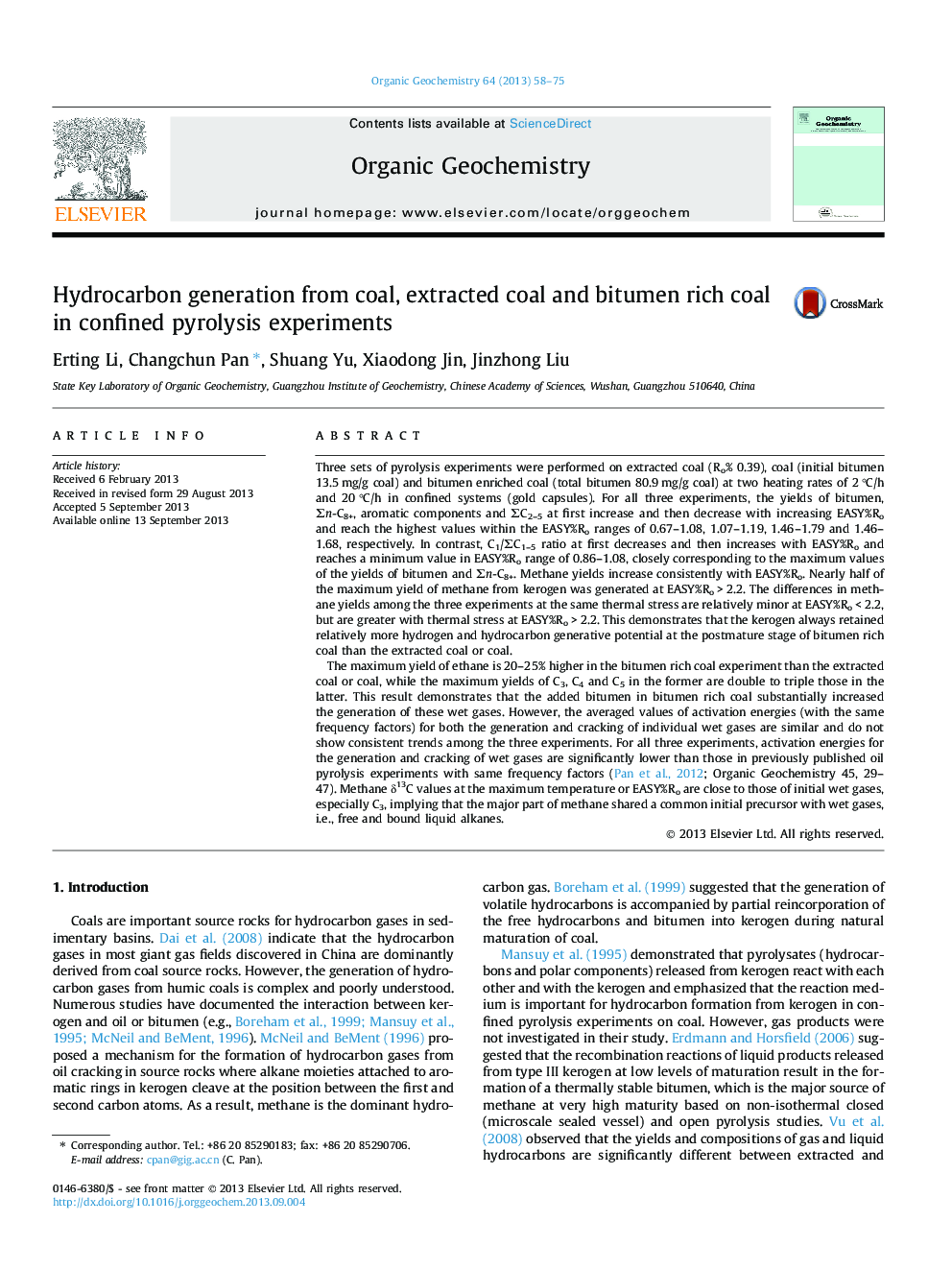| Article ID | Journal | Published Year | Pages | File Type |
|---|---|---|---|---|
| 5163026 | Organic Geochemistry | 2013 | 18 Pages |
Abstract
The maximum yield of ethane is 20-25% higher in the bitumen rich coal experiment than the extracted coal or coal, while the maximum yields of C3, C4 and C5 in the former are double to triple those in the latter. This result demonstrates that the added bitumen in bitumen rich coal substantially increased the generation of these wet gases. However, the averaged values of activation energies (with the same frequency factors) for both the generation and cracking of individual wet gases are similar and do not show consistent trends among the three experiments. For all three experiments, activation energies for the generation and cracking of wet gases are significantly lower than those in previously published oil pyrolysis experiments with same frequency factors (Pan et al., 2012; Organic Geochemistry 45, 29-47). Methane δ13C values at the maximum temperature or EASY%Ro are close to those of initial wet gases, especially C3, implying that the major part of methane shared a common initial precursor with wet gases, i.e., free and bound liquid alkanes.
Related Topics
Physical Sciences and Engineering
Chemistry
Organic Chemistry
Authors
Erting Li, Changchun Pan, Shuang Yu, Xiaodong Jin, Jinzhong Liu,
